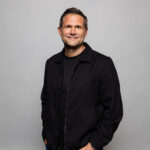
A Truly Social Gospel
It isn’t lost on me that many of the same churches that invite me to proclaim “His glory alone” on their stages today would have been closed or opposed to me just one hundred years ago. The arguments for segregation and racial supremacy have been in the mouths of Christians since the founding of this nation.
It’s no surprise that some of the best gospel preachers in American history were slave owners and openly defended the institution of slavery.
These alleged Bible believing Christians had so segregated the gospel to the sweet by-and-by that it never caused issues with how they treated human beings in the bitter now-and-now. Their rendition of the gospel spoke strictly to the salvation of souls. It allowed individuals to maintain an eloquent gospel, care less for their neighbors, and sleep fine at night.
The legacy of this can be seen in modern platitudes like “it’s not a skin issue; it’s a sin issue.” Sin makes skin an issue, so it’s not an either-or. It’s a skin issue because it’s a sin issue. Platitudes like that are just nice ways for people to avoid wrestling deeply with the complexity of the works of the enemy in the world. The segregated gospel of the Christianity of the Land allows the evils of the land to live side by side with the gospel itself, not transforming the evils but partnering with them.
A gospel that is disconnected from reality has permitted Christians to keep their prejudice, inactivity, apathy, and lack of care for their neighbors while remaining in good standing with the church.
I believe it’s clear that too often we have not been preaching the whole gospel but only pieces of it. The gospel within Scripture is a full gospel. It is not truncated to tight theological aphorisms that point only to future reward. Nah. Jesus’ gospel is about invading the messiness of reality, today.
Perhaps the best way to think about the gospel is simply the Kingdom of God. Mark 1:14- 15 says, “After John [the Baptist] was arrested, Jesus went to Galilee, proclaiming the good news [gospel] of God: ‘The time is fulfilled, and the kingdom of God has come near. Repent and believe the good news!’”
The terms “Kingdom of God” and “Kingdom of Heaven” are found over a hundred times in the New Testament, most densely in the Gospels. And though I love the phrase “gospel of grace and forgiveness,” I love all the more the way the Bible uses the phrase “gospel of God.” The gospel is God big. This opens things up.
The Kingdom of God is God’s undisputed reign. According to the Bible, this heavenly rule is mediated on earth through Christ, and when Jesus says to pray that things would be “on earth as in heaven,” He envisions the Kingdom of God, moment by moment, situation by situation, breaking through the darkness of this world. After His death and resurrection, Jesus is not waiting to be Lord. He is Lord now and currently sits at the right hand of the Father, reigning and ruling as we speak, slowly yet certainly seeing to it that the Kingdom of God overwhelms every single aspect of this world. Wherever the works of the enemy are found, the Kingdom of God is hawking them down and making them bow to redemption. I love it!
We, as believers, are to be microcosms of this cosmic redemption. We have been saved and redeemed, and now the purifying work of the Spirit is making us fit for this coming glory. The Spirit is moving us toward a perfect state. This is the destination of all creation. All creation will reflect the Kingdom of God in its perfection. This is the coming of the new heaven and new earth. This is the gospel—a gospel that is as big as the Kingdom of God, creating right relationships with God, with our neighbors, and with the universe. The Christianity of the Land rightly puts a premium on piety and the individual’s soul being rescued from damnation, but the Christianity of Christ is not satisfied to stop there. There is no such thing as a personal relationship with Christ that does not include personal care for others. The conditions of the soul are connected to the realities of the body.
The gospel is a profoundly human message. I don’t like using the popular church phrase “soul winning” because the Kingdom is not winning souls; it’s winning people. The gospel is for human beings, which are bodies and souls. Jesus did not come to save half of you. He came to save all of you. The redemption of humankind, therefore, is the redemption of both body and soul. The gospel of the Kingdom always goes further. What we see in the Christianity of the Land is the tallying of converts. But the New Testament is not after converts. The New Testament is after disciples. Conversion is a moment where you pray a prayer or confess that you need Christ, which is great! But discipleship encompasses an entire life.
When Christ commissions His disciples, He tells them to teach “them [all nations] to observe everything I have commanded you.”7 Being baptized into the Kingdom, therefore, means not only being made holy and counted righteous before God but also caring for The New Testament is not after converts. The New Testament is after disciples. our neighbors and the needy because this is key to the “everything I commanded you.”
For far too long, we have been comfortable neglecting the social dimensions of the gospel. But the gospel casts a much wider net than how we have often understood it. So when people say, “Just preach the gospel,” I say, “Amen.” But we need to preach the right gospel, because the right gospel includes not only my salvation and circumstances but also those of the people around me, because the Kingdom of God encompasses the entire cosmos.
Preaching the gospel means overcoming the works of the enemy wherever they are found. Societal injustice is not a side issue. A gospel that does not care about societies is not the gospel at all. In other words, social dimensions are not merely implications of the gospel; they are inherent to the gospel. Proclaiming the gospel is indeed the Kingdom of God invading this world. So wherever we run into the reality of sin and systems of oppression, the gospel demands that those things bow down to Jesus. If the gospel fails to address these things, it is no longer the gospel from the Scriptures, because the gospel from the Scriptures moves toward the redemption of all things. This implies that we be active in the societies we live in.
Brothers and sisters, faith is evidenced by what we do. Our actions give a far more accurate reading of our hearts than our words do. We cannot have a solid faith in God, excel in personal holiness, truly belong to Jesus, and yet be disconnected from social expressions of the gospel. There is no gospel in Scripture that is disconnected from a social dimension because there is no Christian walk in the Bible that is disconnected from other people.
As John writes, “If anyone says, ‘I love God,’ and yet hates his brother or sister, he is a liar. For the person who does not love his brother or sister whom he has seen cannot love God whom he has not seen.”13 Hate and disregard, as evidenced by injustice, are indeed dangerous, but I promise you this, my brothers and sisters: love is even more dangerous.
6. See Mark 16:19.
7. Matthew 28:20
13. 1 John 4:20
Adapted from Dangerous Jesus: Why the only thing more risky that getting Jesus right is getting Jesus wrong by Kevin “KB” Burgess, releasing in March from Tyndale House Publishers.
Kevin “KB” Burgess is a Dove Award–winning rapper, speaker, and podcaster. With four full-length albums to his name—including 2020’s His Glory Alone, for which he won the Dove Award for Rap/Hip-Hop Album of the Year—the multi-hyphenate artist is an inimitable force on today’s scene. He has become a No. 1 hitmaker and has received critical acclaim for his studio releases with placement on Billboard’s Top 200 Album Chart and top 5 on Billboard’s Top Rap Album Chart. KB is cohost of the popular podcast Southside Rabbi. Furthermore, HGA—a movement he spearheaded made up of multiethnic urban men and women from all walks of life—has amassed a loyal following around the globe. Although KB wears many hats, his greatest joy is being a husband to Michelle and a father to their three children. Visit him online at whoiskb.com.














